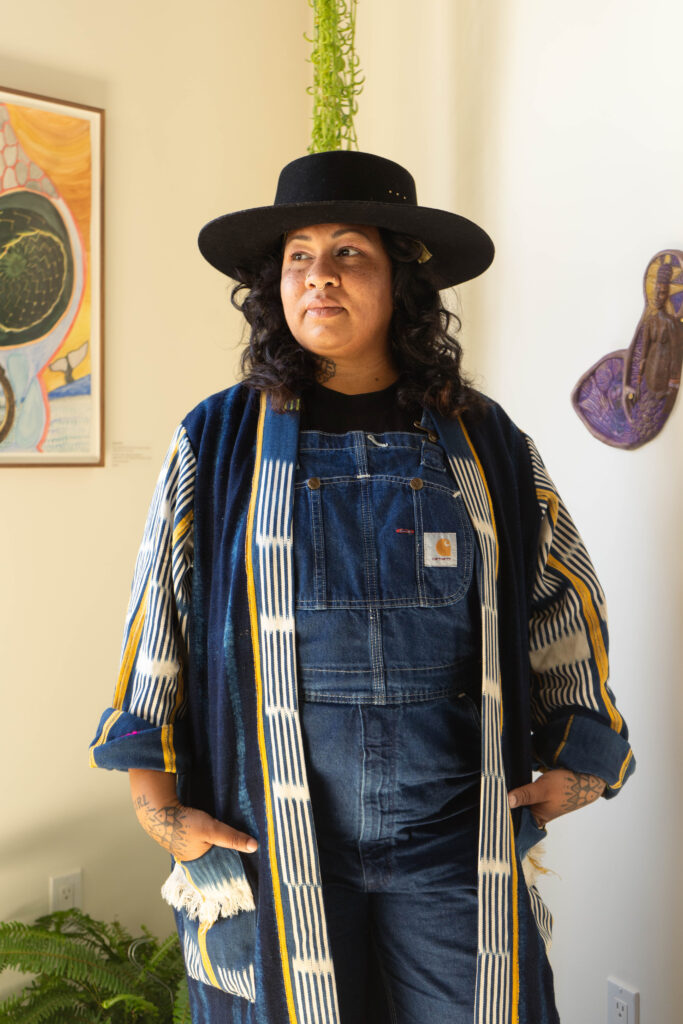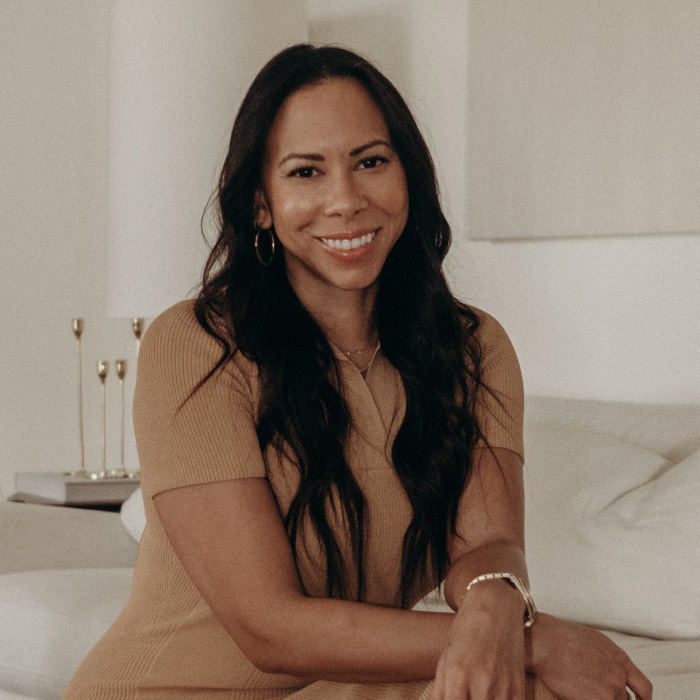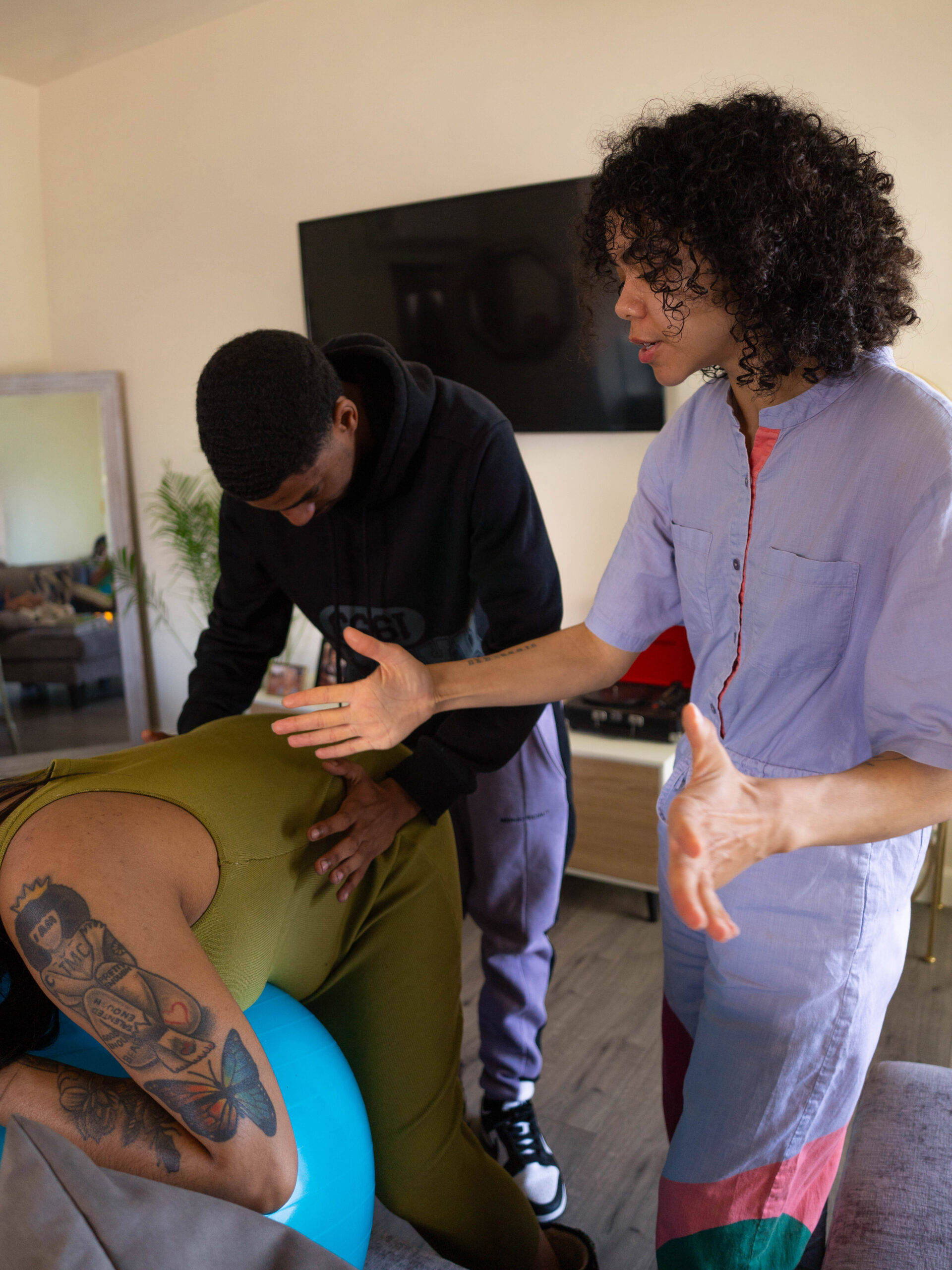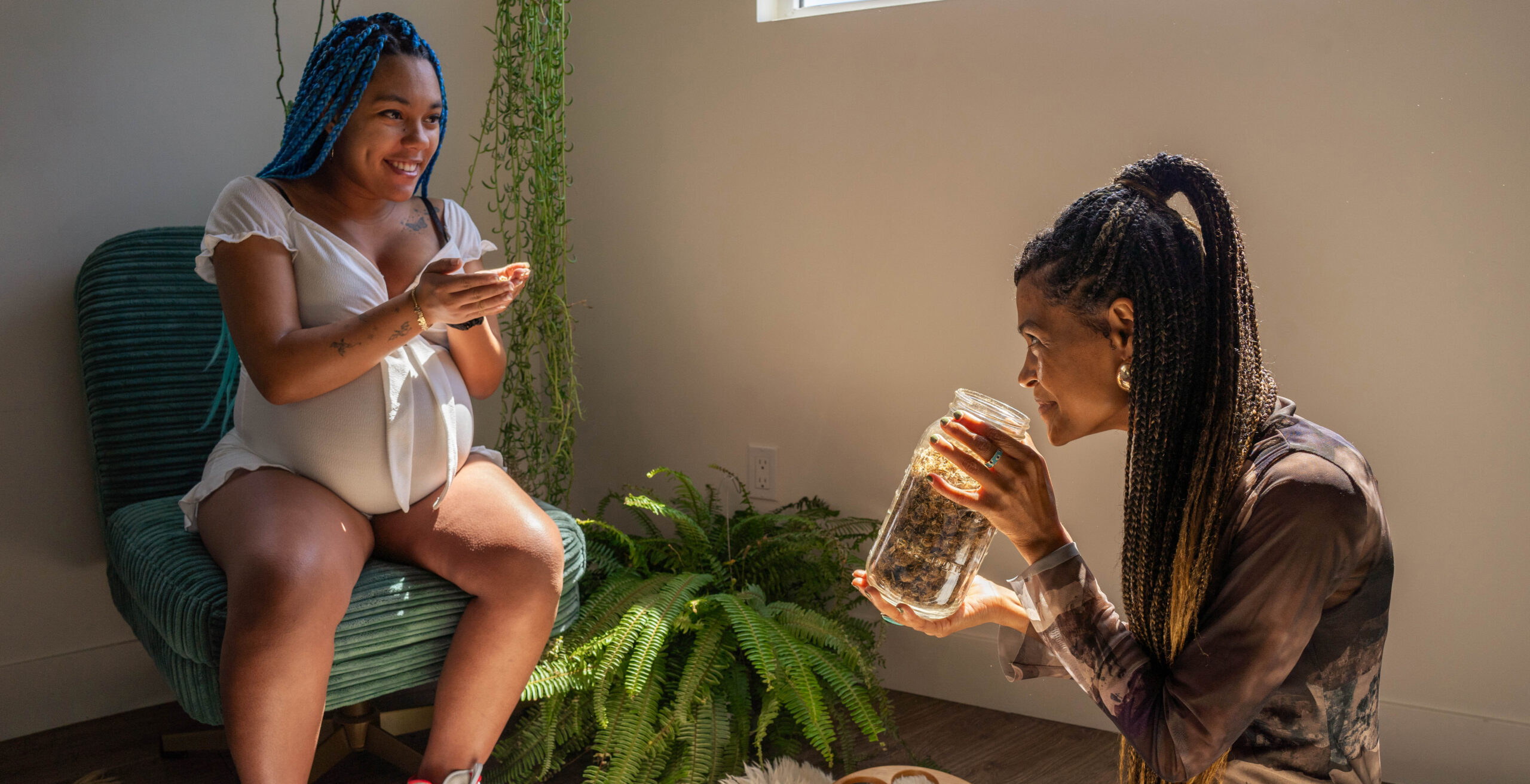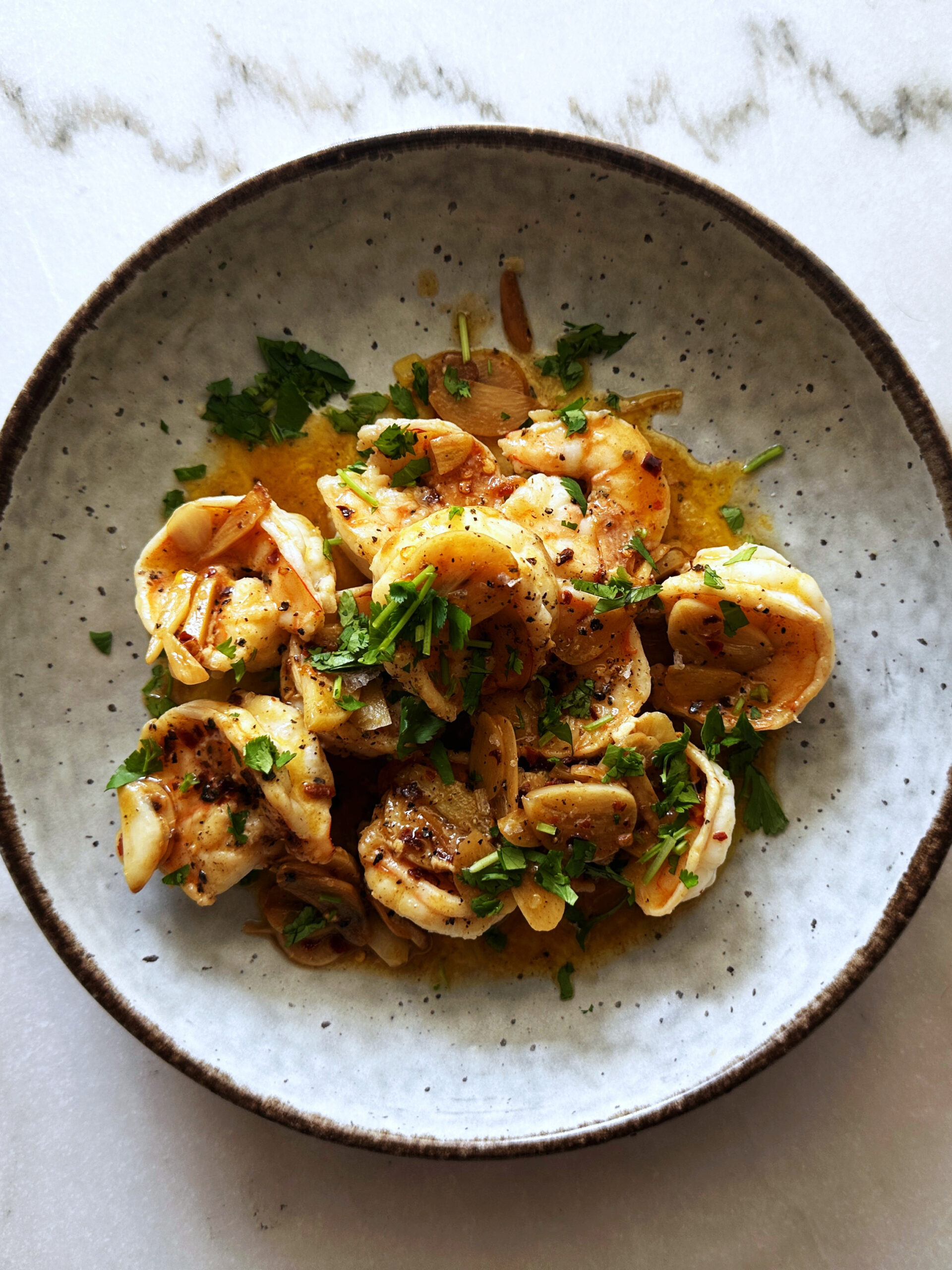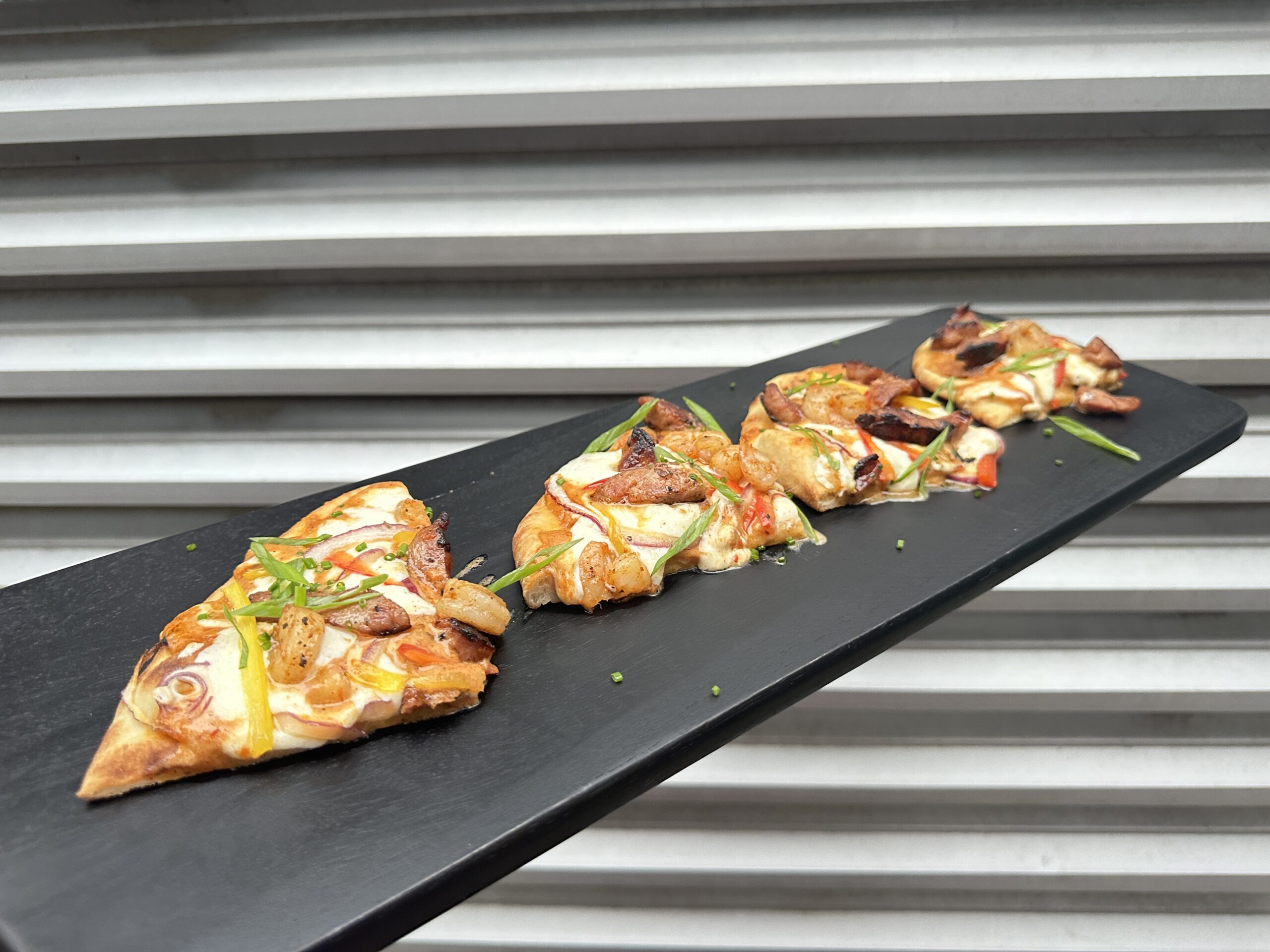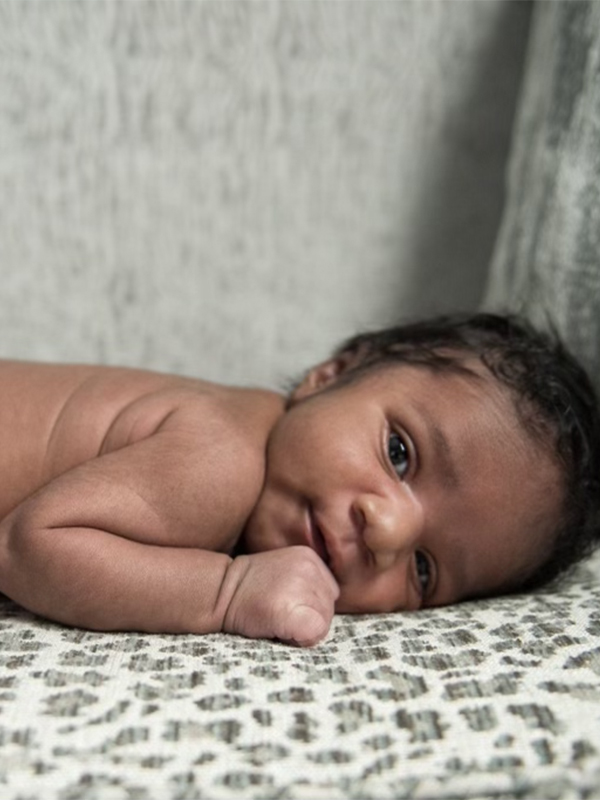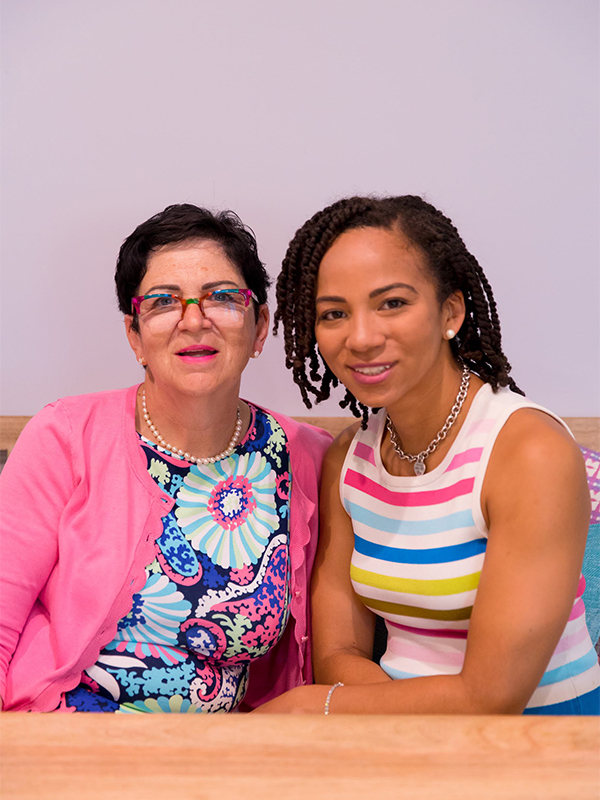From an artistic standpoint, I’ve always been fascinated with the beauty of the Black birthing experience—how the body changes and adjusts to produce new life. The instant instincts that kick in the moment a child is placed into a mother’s arms is a beautiful thing to observe. However, I have witnessed the not-so-beautiful moments of the Black birthing experience. I’ve witnessed a friend almost lose their child because of the carelessness of nurses and the lack of medical attention.
It’s no secret that Black women face disproportionately high rates of maternal mortality as well as other pregnancy complications, largely driven by racial disparities. That’s why now more than ever, Black birth workers are needed to help address this crisis.
Black doulas and birth workers are so necessary—not only from a healthcare perspective but also in fostering Black birthing joy. They provide care, attention, love, and patience that Black mothers and fathers so desperately need in this climate. As Black women, we aren’t easily given early access to resources and knowledge prior to birthing. Our pain isn’t always understood; it’s often brushed off as “dramatic.” Our instincts aren’t believed, because we are often seen as less than. The beauty of Black doulas is in the range of support they provide to our community: prenatal care, postpartum care, and bereavement care for Black mothers.
Below, five Los Angeles-based professional birth workers welcomed Sweet July to photograph intimate moments of the birthing experience and shared insights about their important work.
Shanee Finley, Full Spectrum Doula, Body Work Therapist, Yoga Teacher, and Healer
“Offering a safe container for our Black birthing families to breathe, to be seen, heard, and validated, provides an opportunity for them to foster a positive sense of self and move towards healing. I truly believe a healthy community starts with the development of an individual sense of belonging and well-being.”
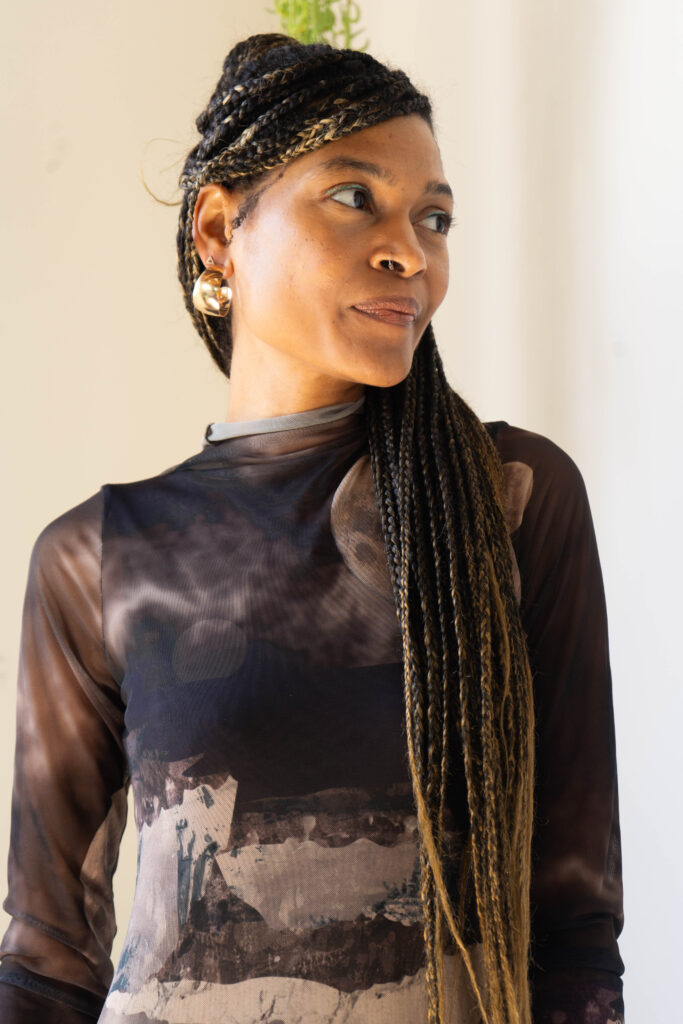
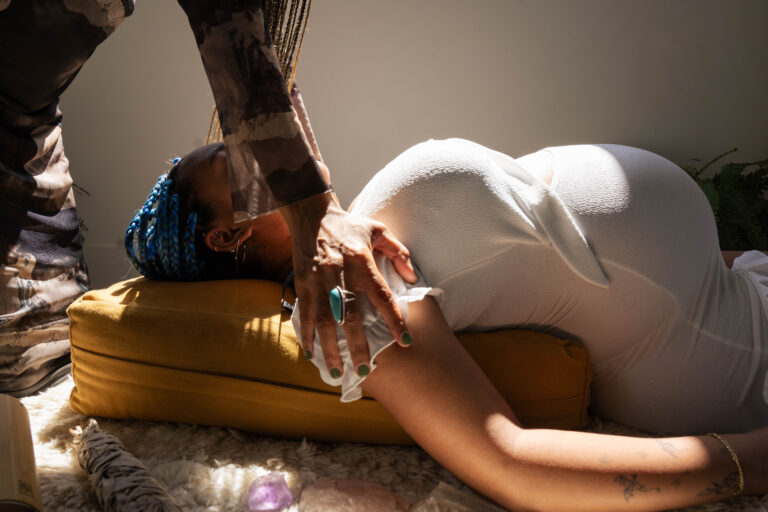
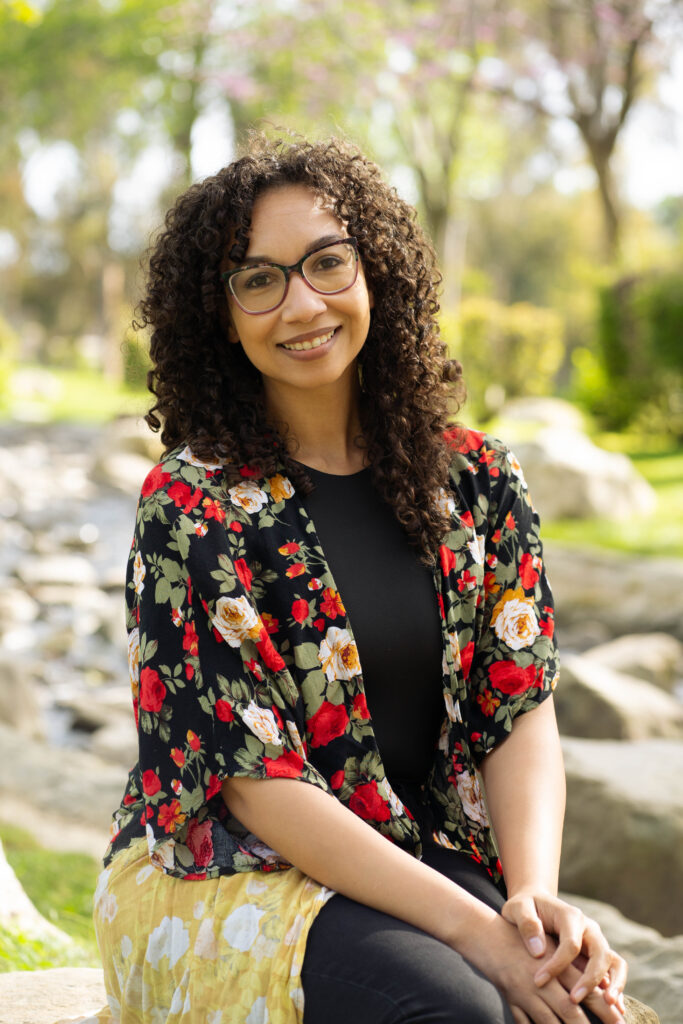
Michelle Henderson, Prenatal and Postpartum Birth Worker
“Black pain is not taken seriously in this country. I, unfortunately, have heard and seen a provider assume a client was a single parent or even address the client’s partner/spouse as a “baby’s daddy” instead of the person’s correct name and title. In one of the most egregious examples I witnessed, a nurse told a Black client she was screaming too loud and acting like a baby when a labor intervention was performed. The client was supposed to be fully anesthetized but was not.”
Mercedez A. Johnson, Community Doula, Executive Director of In Due Time Coalition, Certified Lactation Education Specialist
“I’m a Black woman and mother who coded post-delivery with my third child. Having experience with postpartum hemorrhaging, depression, survivor guilt, and the traumas that came alongside that was my reality. During the intro to my healing journey after the experience, I wanted to save every birthing person. I knew I couldn’t save everyone, that was just my mentality.”
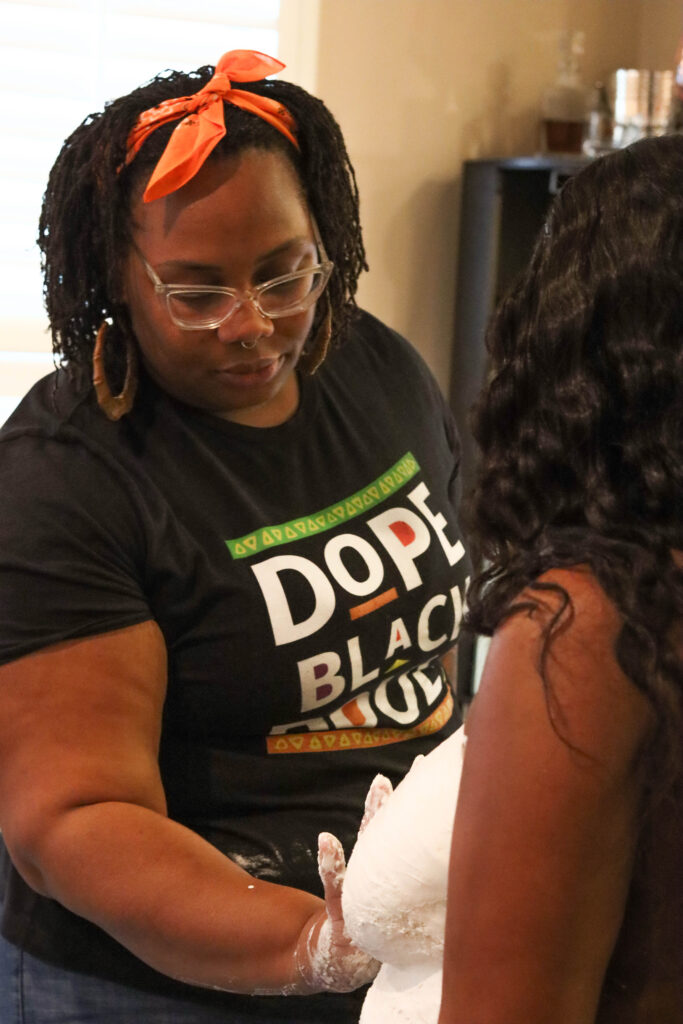
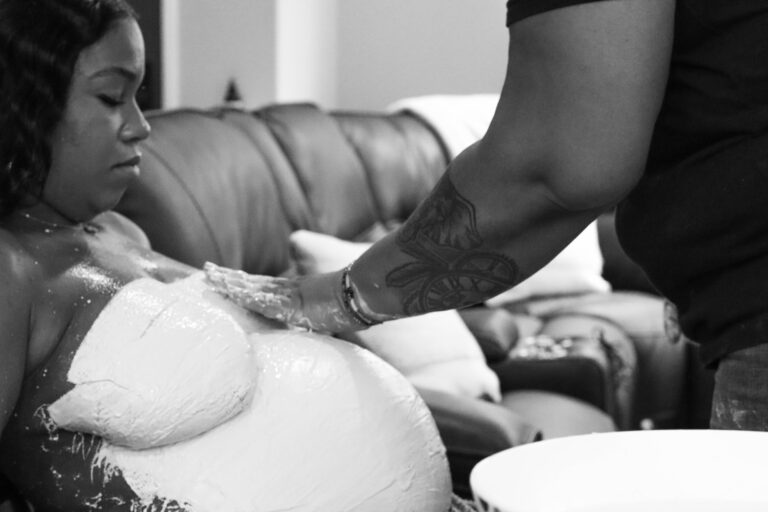
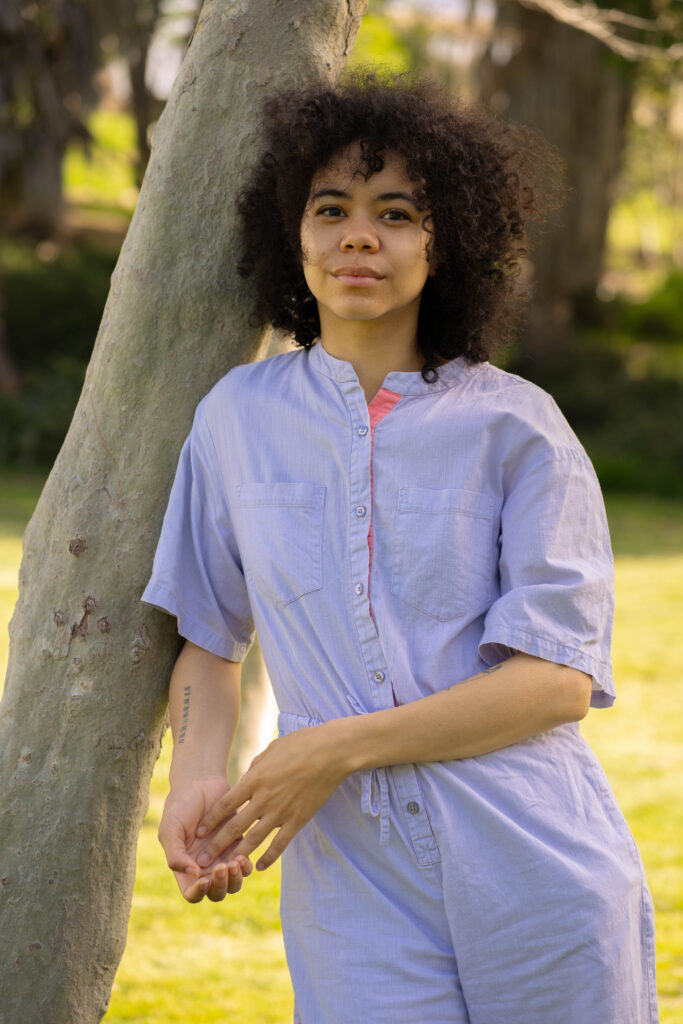
Ansâr El Muhammad, Full Spectrum Doula, CBE
“I learned about doulas in the midst of the Black maternal mortality crisis, after interviewing my grandma about her birth story. She told me of her mother’s eight home births in Louisiana, and how your neighbors were your midwives and doulas. I wanted to know more about the work of a doula and I felt called to it.”
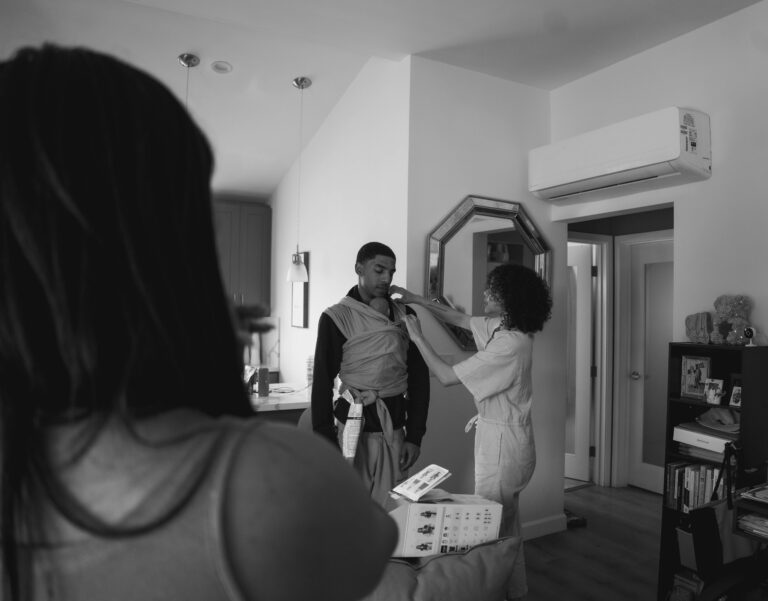
Erlinda Carter, Full Spectrum Birthworker
“Birthworkers and doulas have always existed. Our mothers, sisters, and aunts have been in the rooms with us for years but we all go unheard. When this system can slow down to witness labor and delivery and create space for that is when we can see an impact.”
